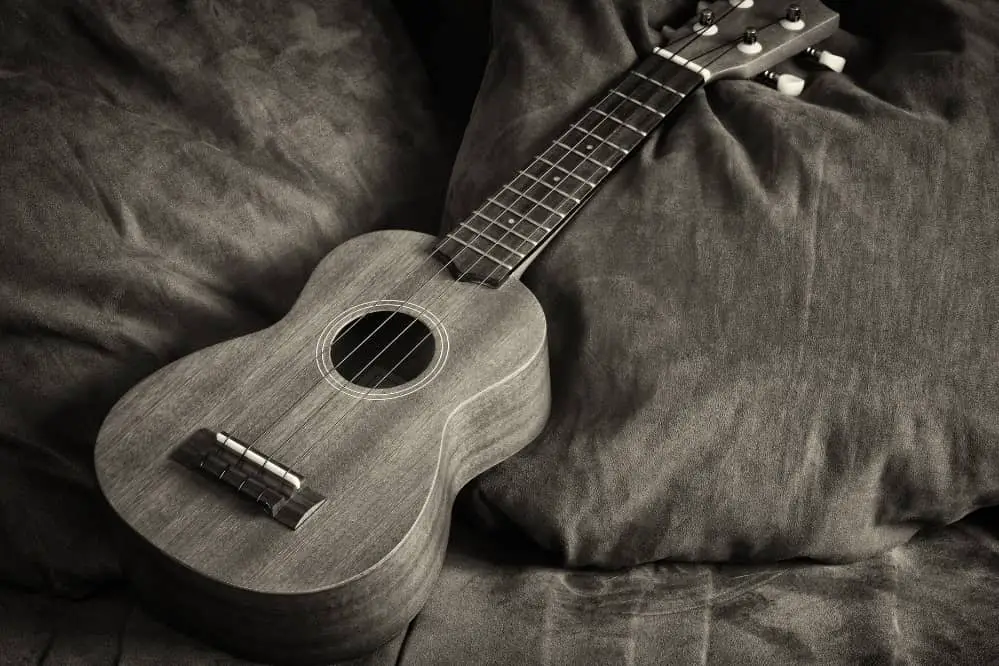It is important to take care of your ukulele at home, just as you would any other instrument. Even if you don’t play it very often, when you take it out, it is exposed to the environment and the oils from your fingers. If you want your ukulele to last into the future, you can take simple steps to protect it. Take a look at seven care and maintenance tips to store a ukulele.
Seven Care and Maintenance Tips to Store a Ukulele
1. Make Sure it Stays Clean
One of the best ways to make sure that your ukulele lasts is to keep it clean. When you play the ukulele, oil and sweat from your hands can trap dust on the surface, and a buildup can damage the wood and lead to deterioration. You should try to create a habit of cleaning it each time you use it.
You can easily clean it with a microfiber cloth and lemon oil. You gently rub the wood all over the instrument to get rid of any dust or residue from the oils on your hands. The most difficult part of this process is cleaning the fretboard. You can give it a good cleaning when you restring it, but try to get the cloth under the strings to wipe it when you are cleaning it.
2. Keep it in a Case
Keeping your ukulele in a case will protect it better than anything else you can do. From the beginning, you should make sure that it is always in the case when you aren’t using it. It doesn’t matter if you have an inexpensive ukulele because you can make sure that it lasts longer by protecting it this way. You won’t risk accidents and spills, and it will stay clean and free of dust when you put it away.
If your ukulele isn’t in a case, it will collect dust, and other debris can get inside it. It might fall and become damaged, or something else may fall on top of it. When it is in the case, you eliminate all of these risks.
3. Restring Your Ukulele When It Needs it
How frequently you need to restring your ukulele will be different for everyone, but it is important to change your strings before they break. When you are using strings that are worn, you won’t get the most out of your instrument. You should avoid replacing one string at a time because the new string will sound different from the old one.
You will know you need to restring your ukulele if you start needing to tune it all the time. You might even notice that the strings aren’t playing as smoothly. The biggest sign is that your music will sound somewhat dull. If you notice any of these signs, it might be time to restring your ukulele.
4. Make Sure That You Store Your Ukulele in the Right Humidity Level
Ukuleles are made from wood, and wood is hygroscopic. This means that it takes in and releases moisture from its environment. Although a protective coating does help to protect your instrument, you still need to be mindful of the humidity levels where you store it.
If there is too much humidity, your ukulele will absorb the moisture and expand. This can lead to warping, and you may notice it in the neck. If the humidity level is too low, the ukulele will shrink, and it can possibly crack. One solution is to use a hygrometer, which tells you the humidity level. Ideally, you should store your ukulele at 50% relative humidity. Make sure that the level is between 50% and 60% to keep your ukulele in the best condition.
5. Use Your Capo the Right Way
It is possible to damage your ukulele by removing or replacing your Capo incorrectly. This can lead to strings breaking or dents in the neck. Your clamp should be wide so that there isn’t excess friction with the neck, and it is important to unclamp it before you pull it off. Taking care with your Capo will help to prevent damage.
6. Be Careful When You Handle the Ukulele
Whether you are taking it out to play it or moving it to take along with you, you should create a habit of taking care when you handle your ukulele. When you aren’t paying attention or are trying to hold too many things, it is easy to drop your instrument. This can lead to all kinds of problems from scratches to actually breaking part of the ukulele.
When you store your ukulele, make sure that it is in a stable place where it can’t fall. When you take it out, treat it as you would something that is fragile. Then, hold it carefully and securely. Don’t throw it on a chair or in the back of the car. If you get into the habit of treating your ukulele as you would a fragile object, it will hold up and last longer.
7. Be Careful with the Pick
If you use a pick with your ukulele, make sure that you don’t scratch the instrument. You need to learn how to use the pick without letting it touch the body of the instrument. It might take some practice, but it is better to make sure that you don’t damage your instrument while you are enjoying it.




